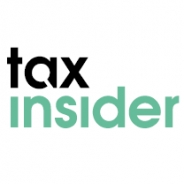
James Bailey looks at partnerships as a possible property business structure, for Tax Insider.
Introduction
A partnership is one of the oldest and most basic of business entities. Partnerships are still governed by the Partnership Act 1890, which defines a Partnership as “The relation which subsists between persons carrying on a business in common with a view to profit”.
If you are a member of a partnership, it pays to read the Partnership Act 1890 carefully. Although a partnership can and should have its own written Partnership Agreement, in the absence of such an Agreement, or if the Agreement does not cover all the possible business situations, the terms of the Partnership Act will prevail. For example, unless the Partnership Agreement states something different, the presumption of the Partnership Act is that all the assets of the partnership are owned equally by all the partners.
A partnership is described as ’transparent‘ for tax purposes. This means that the partnership itself does not pay Income Tax or Capital Gains Tax – instead, the individual partners are taxed on their share of the partnership’s profits or gains. This can lead to some misconceptions about partnership tax – I have frequently come across partners who believe they are taxed on what they take out of the partnership – their ’drawings‘, or as they sometimes (wrongly) call them, their ’wages‘. A partner is taxed on his share of the partnership profit, whether he chooses to take it out of the partnership bank account or not.
Tax Treatment of Partnerships
The size of each partner’s share is determined by the partners themselves from year to year, and this gives some valuable flexibility, particularly within a family partnership, so that profits can be allocated to those with the lowest tax rates, and losses to those with the highest – though losses on a rental business cannot be set against other income. The exception to this is the case of a married couple (or civil partnership) where HMRC will always contend that the split of rental income follows the special rules for married couples.
In the case of a property partnership involving a married couple, the couple’s rental income is deemed to be split 50:50 between husband and wife (subject to a right to elect for the income to be split according to actual ownership if the property is owned in unequal shares). [For more information on joint property ownership, see Malcolm Finney's article Spouse Jointly Owned Rental Properties Part 1 - Ed.]
Profit Shares
Provided HMRC are satisfied there is a genuine partnership, the shares of partners other than married couples can be determined by the partners themselves – and the special rules for married couples only apply to ’investment‘ income (including rents); trading income and rents from Furnished Holiday Accommodation can be split between married partners as they wish.
It is important for partners to remember that they are jointly liable for the partnership debts. This ’unlimited liability‘ is one of the reasons for the increasing popularity of the Limited Liability Partnership (LLP).
Stamp Duty Land Tax
If you are already a landlord and are considering transforming your property business into a partnership, perhaps by involving your spouse or family members, it is particularly important to consider the possible liability to Stamp Duty Land Tax. This is a very complex area of the tax legislation and you need to take specialist advice, especially if any of your properties are subject to mortgages.
Practical Tip
Although the basic partnership is less flexible than some more modern business entities, for a medium sized property portfolio, its simplicity and flexibility have much to recommend it.



Please register or log in to add comments.
There are not comments added